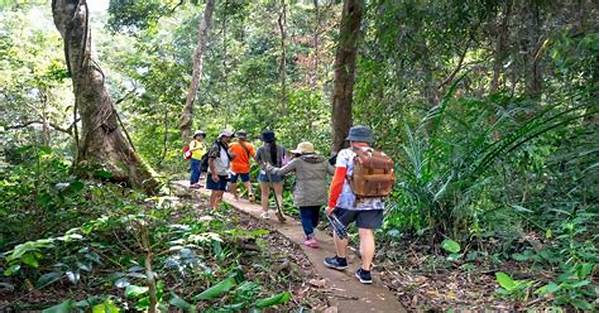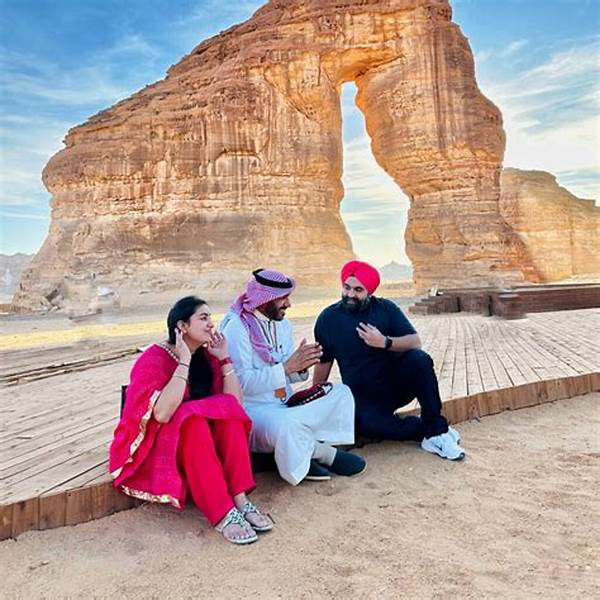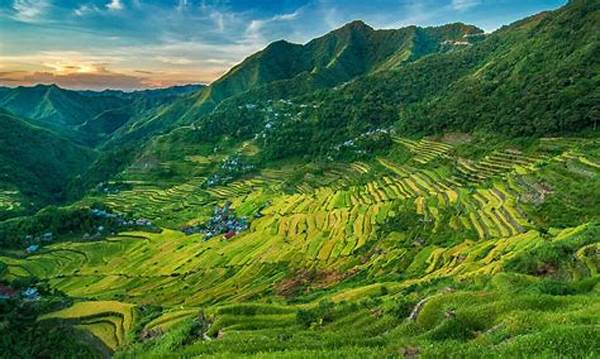Welcome to a world where globetrotting meets the green light of conservation! Imagine embarking on a journey that not only fulfills your wanderlust but also enriches your soul and helps save the planet. Get ready to explore how conservation education for tourists can redefine travel experiences by blending adventure with environmental stewardship. Let’s dive in and uncover the stories, successes, and opportunities that await you in the realm of eco-friendly tourism.
Read More : Why Families Recommend Natural Tourist Attractions In Bogor Eco Parks
Have you ever thought that your travel could plant seeds of change, not just memories? Picture this: snorkeling in pristine coral reefs and learning firsthand how to protect them, hiking through lush rainforests while understanding biodiversity, visiting local wildlife conservation projects, all while contributing positively. This isn’t just tourism; it’s a conscious contribution to preserving our precious ecosystems. Allow us to walk you through the vibrant pathways of conservation tourism and open your eyes to a journey that matters.
The Importance of Educating Tourists
Conservation education for tourists isn’t just a fanciful notion—it’s a vital need. Every year, millions of people travel, leaving footprints on the landscapes they visit. So, what if we turn these footprints into learning experiences that encourage preservation rather than exploitation?
One compelling statistic from the United Nations World Tourism Organization highlights that over 1.4 billion international tourist arrivals are recorded annually. Imagine if even a fraction of these travelers were equipped with conservation knowledge, the impact would be monumental! The main aim of conservation education is not just to make tourists passive observers, but active participants in the safeguarding of natural and cultural heritage.
Bridging Cultures and Conservation
Fundamentally, conservation education for tourists serves as a bridge that connects diverse cultures with the delicate ecosystems they explore. It’s an invitation to step out of your comfort zone, engage with local communities, and learn from their sustainable practices. No longer is the traveler a transient observer; instead, they become a partner in the grand scheme of environmental sustainability.
By fostering a sense of empathy and responsibility, conservation education invites us to be part of a global support network, championing causes that impact everyone, everywhere.
Getting Tourists on Board
What’s the secret to sparking tourists’ interest in conservation? Storytelling! Picture yourself listening to a local guide sharing tales about the native species and the land they call home. These narratives invite emotional connections, endear travelers to the subject matter, and propagate understanding and respect for wildlife and ecosystems.
In simplified terms, this is more than a marketing strategy; it’s crafting a meaningful experience. Through humor, stories, and compelling facts, tourist education programs can inspire action, nurturing a desire within travelers to contribute to conservation efforts. This symbiotic relationship between tourism and education promotes a win-win scenario where both people and the planet benefit.
The Role of Technology
In this digital age, technology plays a pivotal role in conservation education for tourists. From apps that guide travelers with eco-friendly tips to virtual reality experiences that showcase diverse ecosystems, technology bridges the gap between education and participation.
Interactive tools allow tourists to dive into conservation efforts even before their journey begins. Podcasts, videos, and social media platforms spread knowledge like wildfire, engaging audiences worldwide and turning digital natives into informed travelers.
Read More : Natural Tourism Bandung Caves Exploration For Adventure Seekers
Achieving Conservation Goals Through Tourism
Conservation goals can be intensely ambitious. Yet, the good news is that tourism, when used correctly, acts as a powerful tool to achieve these goals. Here’s how conservation education intertwines with tourism to accomplish long-term objectives:
Purposeful Travel: Impact and Experience
When conservation meets tourism, it paves the way for purposeful travel. Whether it’s volunteering at a marine conservation project or understanding the intricacies of indigenous art inspired by nature—these experiences create a lasting impact. By integrating learning with leisure, every journey transforms into an enriching adventure.
Real-Life Examples
Consider visiting Africa’s Maasai Mara, guided by eco-tourist warriors who share insights into the symbiotic relationship between wildlife and human communities. Or imagine exploring the rich biodiversity of the Amazon, where firsthand experiences with local tribes provide profound knowledge of ancient conservation methods that have stood the test of time.
Here’s why these transformative experiences matter:
Final Thoughts: Conservation Education as a Pillar of Sustainable Tourism
Embedding education into tourism isn’t merely an afterthought—it’s essential for creating a sustainable world. By offering conservation education for tourists, we ensure that every travel adventure has the potential to nurture a more mindful relationship between our planet and its people. As we move towards an era of responsible tourism, the collaboration between educators, travelers, and local communities promises a brighter, more sustainable future.
A Win-Win Scenario: Learning and Travel
Ultimately, tourism that prioritizes conservation education fosters a win-win scenario. Tourists cherish unique experiences, collect unforgettable stories, and leave with newfound knowledge. Meanwhile, the environment and local communities gain advocates, economic support, and long-term sustainability.
In conclusion, the future of travel lies in informed journeys that tread lightly and give generously. Conservation education for tourists is not just an option—it’s a necessity that ensures every adventure leaves the world a little better than we found it. Are you ready to redefine your travel experience and embark on a journey with purpose?


